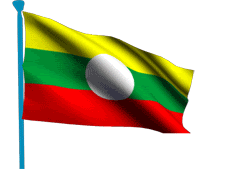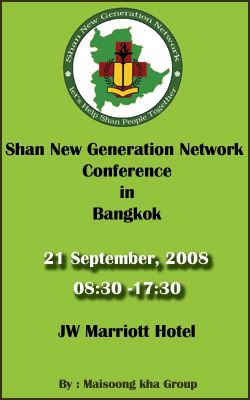Since early 2002, Clear Path International has been working with ethnic refugee health committees along the Thai border with Burma to provide prosthetic and rehabilitation care to hundreds of Burmese landmine amputees. It has also funded efforts to improve prosthetics fabrication and measurement technology resulting in better and lower-cost limbs for accident survivors.
It all began at the Mae Tao Clinic 250 miles northwest of Bangkok. The clinic, located within a mile from the Burmese border, was set up by Nobel Peace Prize nominee Dr. Cynthia Maung to serve ethnic Karen and other Burmese refugees who were displaced by the fighting between ethnic and government troops inside Burma.
At the Mae Tao Clinic, Clear Path has provided financial support for prostheses materials, the construction of a new prosthetics workshop and the training of new technicians – all landmine accident survivors. The clinic’s prosthetics department was founded by Maw Kel, himself a Karen landmine amputee who was trained by Handicap International and made artificial legs in the refugee camps for 15 years.
Maw Kel’s prosthetics department, which has graduated a number of technicians who have spread out to work along the border, has become a hub for the creation and nurturing of other prostheses production shops with financial and technical support from Clear Path:
The goal is to use the Mae Tao Clinic as a center for outreach among displaced amputees who cannot travel because of legal and security issues, using a new remote measurement device developed by Prosthetics Research Study of Seattle with funding from Clear Path. The technology, known as the Transtibial Alignment System (TTAS), is introduced at the Mae Tao Clinic to technicians from each of the four work shops along with thermoplastics production resulting in lighter, cheaper and more durable below-the-knee prostheses. By using this new technique, landmine amputees in the remote jungles are able to get prostheses without travelling to a clinic or production site.

In the Thai-Burma border region, where 2 million refugees have fled their homes since 1996, Clear Path works alongside Handicap International and the International Committee of the Red Cross. HI serves the landmine survivors in the United Nations refugee camps (approximately 160,000 people) along the Burmese border in Thailand, while ICRC has orthopaedic facilities in government-held territories in eastern Burma. Clear Path’s unique role is to help the ethnic refugee committees reach and serve amputees the two other organizations can’t.
CPI’s country representative, a physical therapist from the Netherlands, provides several training sessions per year to the local staff at Mae Tao Clinic. These sessions are designed to improve the rehabilitation treatment of the amputees, and to expand local rehabilitation knowledge and skills.
PENG LO, Thailand – A few hours north of Chiang Mai, the Shan Health Committee has founded a prosthetics shop that employs two technicians who graduated from Maw Kel’s training course at the Mae Tao Clinic. Clear Path funded their training, equipment and operating budget. It continues to provide technical expertise to the remote shop.
KUNG JOR, Thailand – This camp of 600 refugees from the Shan State in Burma is close to the Peng Lo workshop. Here, CPI supports the Shan Health Committee initiative to build a pig and fish farm that will create jobs for seven amputees who live in the camp. This income-generating project helps them generate income, rebuild their self-esteem and independence, and facilitates social reintegration.
LOI KAW WAN and LOI TAILENG, Thailand – These two remote villages at the far north-eastern border with Burma count respectively 2,800 and about 2,000 refugees from ethnic groups. Seven amputees in Loi Kaw Wan want to unite with a group of more than 20 amputees in nearby Therd Thai to find suitable jobs and have asked CPI to support their effort. In Loi Taileng, 28 amputees have asked CPI to help them start income-generating projects through the Shan Health Committee. CPI’s country representative provides orthopaedic rehabilitation training to the staff of the medical clinics in both villages.
LOI KAW, Burma – To meet the needs of the numerous amputees inside Eastern Burma, CPI supports a new workshop in the Karenni capitol. The area is fairly stable, but accident survivors have no other access to medical and/or prosthetic treatment in their area. Seven technicians who were trained at the Mae Tao Clinc are running this new workshop, which started producing artificial legs in October 2007.
KHO KEY, Burma – This small shop was started by the Committee for Internally Displaced Karen People and serves landmine accident survivors in the southern part of the territory held by the Karen National Union. Clear Path provided the budget for raw materials to make prostheses and the local organization has been sustaining the workshop ever since.
CARE VILLA, Mae La camp, Thailand – This is a home, a shelter and a 24-7 care facility for 18 men inside the UN refugee camps at Mae La. Most of the men were blinded by landmines and/or lost their hands and arms in their accidents. CPI funds are used for their daily care and the building. Saw Mordecai, himself a landmine victim, is dedicated to help these severely disabled survivors make their lives as worthy as possible through handicraft and musical activities. The CPI country representative and other volunteers provide intermittent physical therapy for the men.
Source : CPI
It all began at the Mae Tao Clinic 250 miles northwest of Bangkok. The clinic, located within a mile from the Burmese border, was set up by Nobel Peace Prize nominee Dr. Cynthia Maung to serve ethnic Karen and other Burmese refugees who were displaced by the fighting between ethnic and government troops inside Burma.
At the Mae Tao Clinic, Clear Path has provided financial support for prostheses materials, the construction of a new prosthetics workshop and the training of new technicians – all landmine accident survivors. The clinic’s prosthetics department was founded by Maw Kel, himself a Karen landmine amputee who was trained by Handicap International and made artificial legs in the refugee camps for 15 years.
Maw Kel’s prosthetics department, which has graduated a number of technicians who have spread out to work along the border, has become a hub for the creation and nurturing of other prostheses production shops with financial and technical support from Clear Path:
The goal is to use the Mae Tao Clinic as a center for outreach among displaced amputees who cannot travel because of legal and security issues, using a new remote measurement device developed by Prosthetics Research Study of Seattle with funding from Clear Path. The technology, known as the Transtibial Alignment System (TTAS), is introduced at the Mae Tao Clinic to technicians from each of the four work shops along with thermoplastics production resulting in lighter, cheaper and more durable below-the-knee prostheses. By using this new technique, landmine amputees in the remote jungles are able to get prostheses without travelling to a clinic or production site.

In the Thai-Burma border region, where 2 million refugees have fled their homes since 1996, Clear Path works alongside Handicap International and the International Committee of the Red Cross. HI serves the landmine survivors in the United Nations refugee camps (approximately 160,000 people) along the Burmese border in Thailand, while ICRC has orthopaedic facilities in government-held territories in eastern Burma. Clear Path’s unique role is to help the ethnic refugee committees reach and serve amputees the two other organizations can’t.
CPI’s country representative, a physical therapist from the Netherlands, provides several training sessions per year to the local staff at Mae Tao Clinic. These sessions are designed to improve the rehabilitation treatment of the amputees, and to expand local rehabilitation knowledge and skills.
PENG LO, Thailand – A few hours north of Chiang Mai, the Shan Health Committee has founded a prosthetics shop that employs two technicians who graduated from Maw Kel’s training course at the Mae Tao Clinic. Clear Path funded their training, equipment and operating budget. It continues to provide technical expertise to the remote shop.
KUNG JOR, Thailand – This camp of 600 refugees from the Shan State in Burma is close to the Peng Lo workshop. Here, CPI supports the Shan Health Committee initiative to build a pig and fish farm that will create jobs for seven amputees who live in the camp. This income-generating project helps them generate income, rebuild their self-esteem and independence, and facilitates social reintegration.
LOI KAW WAN and LOI TAILENG, Thailand – These two remote villages at the far north-eastern border with Burma count respectively 2,800 and about 2,000 refugees from ethnic groups. Seven amputees in Loi Kaw Wan want to unite with a group of more than 20 amputees in nearby Therd Thai to find suitable jobs and have asked CPI to support their effort. In Loi Taileng, 28 amputees have asked CPI to help them start income-generating projects through the Shan Health Committee. CPI’s country representative provides orthopaedic rehabilitation training to the staff of the medical clinics in both villages.
LOI KAW, Burma – To meet the needs of the numerous amputees inside Eastern Burma, CPI supports a new workshop in the Karenni capitol. The area is fairly stable, but accident survivors have no other access to medical and/or prosthetic treatment in their area. Seven technicians who were trained at the Mae Tao Clinc are running this new workshop, which started producing artificial legs in October 2007.
KHO KEY, Burma – This small shop was started by the Committee for Internally Displaced Karen People and serves landmine accident survivors in the southern part of the territory held by the Karen National Union. Clear Path provided the budget for raw materials to make prostheses and the local organization has been sustaining the workshop ever since.
CARE VILLA, Mae La camp, Thailand – This is a home, a shelter and a 24-7 care facility for 18 men inside the UN refugee camps at Mae La. Most of the men were blinded by landmines and/or lost their hands and arms in their accidents. CPI funds are used for their daily care and the building. Saw Mordecai, himself a landmine victim, is dedicated to help these severely disabled survivors make their lives as worthy as possible through handicraft and musical activities. The CPI country representative and other volunteers provide intermittent physical therapy for the men.
Source : CPI









No comments:
Post a Comment